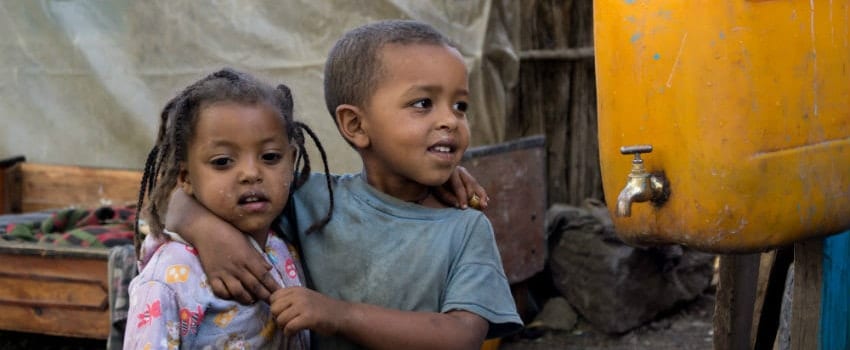
Concern Worldwide is extremely worried by the massive drought affecting Ethiopia which could leave millions of people malnourished and at risk of disease or unable to work. Kate Corcoran Concern’s Ethiopia country director is there on the ground and provides a first-hand account of what Concern is doing to help with the situation.
Failed rains
The main reason for the crisis is there has been low rainfall this season. The country has two rainy seasons, one takes place during the summer whilst the other takes place in Spring. Last year however the rains did not materialise as a result of the El Nino weather systems. Many experts and scientists are pointing to climate change as the reason for the failure of the rains.
Crop failure
Low rainfall has obviously meant there are water shortages for which the impact is intense. People have little or no water drink, cattle have died and crops have failed. This has left families starving and unable to sell produce to buy essential items. About 80 per cent of Ethiopia’s population is dependent on farming to earn a living, however many farmers will now have to wait until the next harvest season which takes place in November or December if it arrives at all.
Threat of disease
Another risk is the growing threat of disease. Because people have no water to wash, scabies has fast become a massive problem. The crisis is also being felt in areas which were previously thought to be more immune to such shocks. For example East Gojjam in the North of the country is usually an area which produces a surplus of food however when Ms. Corcoran visited she found a community also in crisis. There has been a failure of water sources, the water table has dropped dramatically and local rivers and springs are dry and people are reporting that cattle have been dying.
Concern doubles its efforts
Concern has been working in Ethiopia for over 4 decades, however over the last year, the number of staff members in the country has doubled from 200 to 400. Ms. Corcoran adds the agency has seen the crisis develop since March and as a result has scaled up its resources in the country to meet the needs of the worst affected areas.
Concern’s work
The work Concern is doing is helping women care for their malnourished children safely at home. This stops the children from having to visit hospitals and clinics and helps parents to care for their kids independently. The organisation is also providing seeds to families that have experienced crop failure so they can make another attempt at growing when the rains come. Concern is also providing people with clean water and soap as well as offering medical advice so they can avoid disease. It is likely that as a result of climate change, unpredictable weather patterns are going to become more common, so Concern is also helping farmers better deal with crises such as water shortages.





